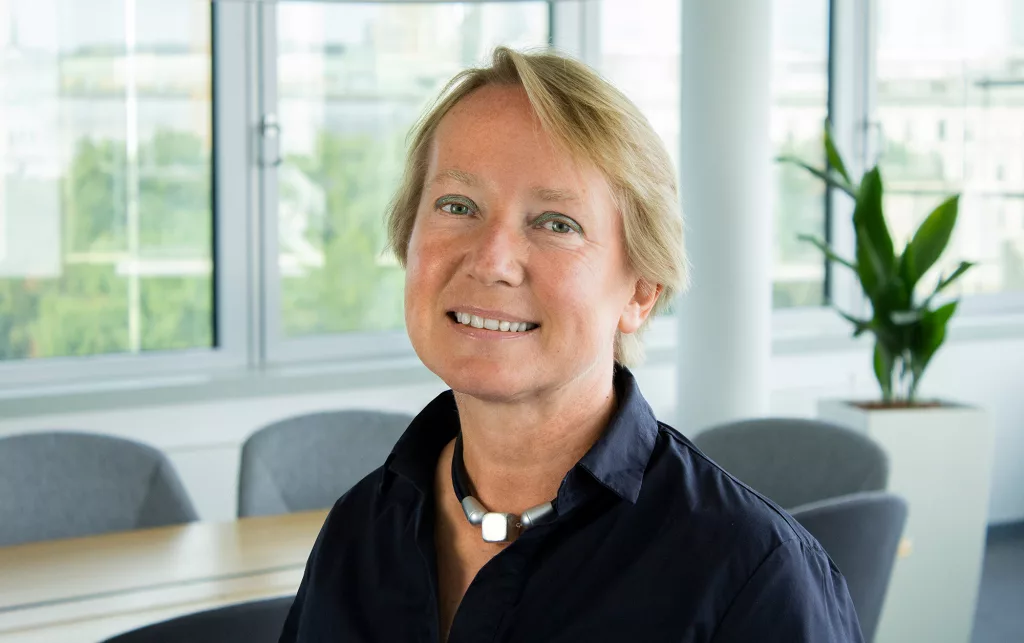Heike Arbter: Finding the Right Talent — and Retaining It
CFI.co in conversation with Heike Arbter, head of Raiffeisen Certificates.
Raiffeisen Certificates is a leading Austrian certificates provider in the DACH region, as well as in Central and Eastern European markets.

Head of Raiffeisen Certificates: Heike Arbter
It has been around for more than a quarter of a century, with a product range that comprises 7,000 investment and leverage products.
CFI.co: What excites you about the business world in general?
Heike Arbter: I have been working for Raiffeisen Certificates (formerly Raiffeisen Centrobank) for more than 25 years now. I contribute my enthusiasm for capital markets and structured products. It’s important to me to familiarise people with the advantages and opportunities of the capital markets. We offer customers the opportunity to invest in underlying assets, such as share indices, with capital protection. This is interesting for newcomers as well as for conservative investors — who are very present in Austria.
What lessons did you learn from your earlier professional experience?
You could sum it up with the motto “lifelong learning”. Above all, we learn from our customers’ feedback. In recent years, we have seen how important our products with protection mechanisms are for investors. During the many volatile phases on the stock markets, certificate investors with capital protection products have always been able to sleep well. It’s a pleasure for me to see how our products and information service are welcomed by our customers.
What motivates you about the company you now lead?
The successes of our Raiffeisen Certificates team are impressive. We were recently voted the best provider in Austria by an independent jury at the Certificates Awards — for the 18th consecutive time. We’re pleased about the growing interest in us by customers, and by our continuous growth. Another point of satisfaction is our strong positioning in Central and Eastern Europe, where we are able to respond to the needs of local markets in a targeted manner.
What is special about your organisation’s management style?
It’s important to me that I can rely on a great team. We work hard to equate market developments with customer needs, and respond with innovation and suitable products. I think it makes sense for the whole team to set realistic, but ambitious, goals, and work to achieve them.
What are the key strengths of the team you lead? How important is your support team?
In Austria, there is a common saying: “Success has many fathers.” Our diverse team has many different skills, specialisations and deep expertise. Certainly a “father” of our successes.
What are the key traits of a good manager in a company?
Our people are our most important asset. A manager must always realise this. Those who listen to employees, respond to them, and allocate tasks that allow them to grow, will be successful. An important goal is to retain talent for the long term.
Do these criteria change when applied to your specific industry?
The requirements for managers are similar in all sectors. However, there are differences when it comes to products, product development, and dealing with customers. For financial service providers, it’s important to build trust with customers and other stakeholders.
Expertise, consistency, reliability, and a clear vision are always an advantage. To realise this long-term approach and reliability, we enter into long-term partnerships with our employees. We don’t believe in a “hire and fire” policy.
You may have an interest in also reading…
Precision Medicine and Gender Disparities: Research Promotes Major Advances in Brain Health
In the ever-evolving world of healthcare, precision medicine has taken centre stage — and for good reason… Precision medicine can
Powering Africa’s Future: An Interview with the Founder & CEO of Ariya Capital Group
As Africa’s energy sector undergoes rapid transformation, Ariya Capital Group stands at the forefront, driving investment and innovation in clean
Lord Waverley: Comprehensive UK Trade Policy Strategy for ‘a New Beginning’
The countdown to the United Kingdom embarking on a new chapter has begun. As I write, there are still many
















































































